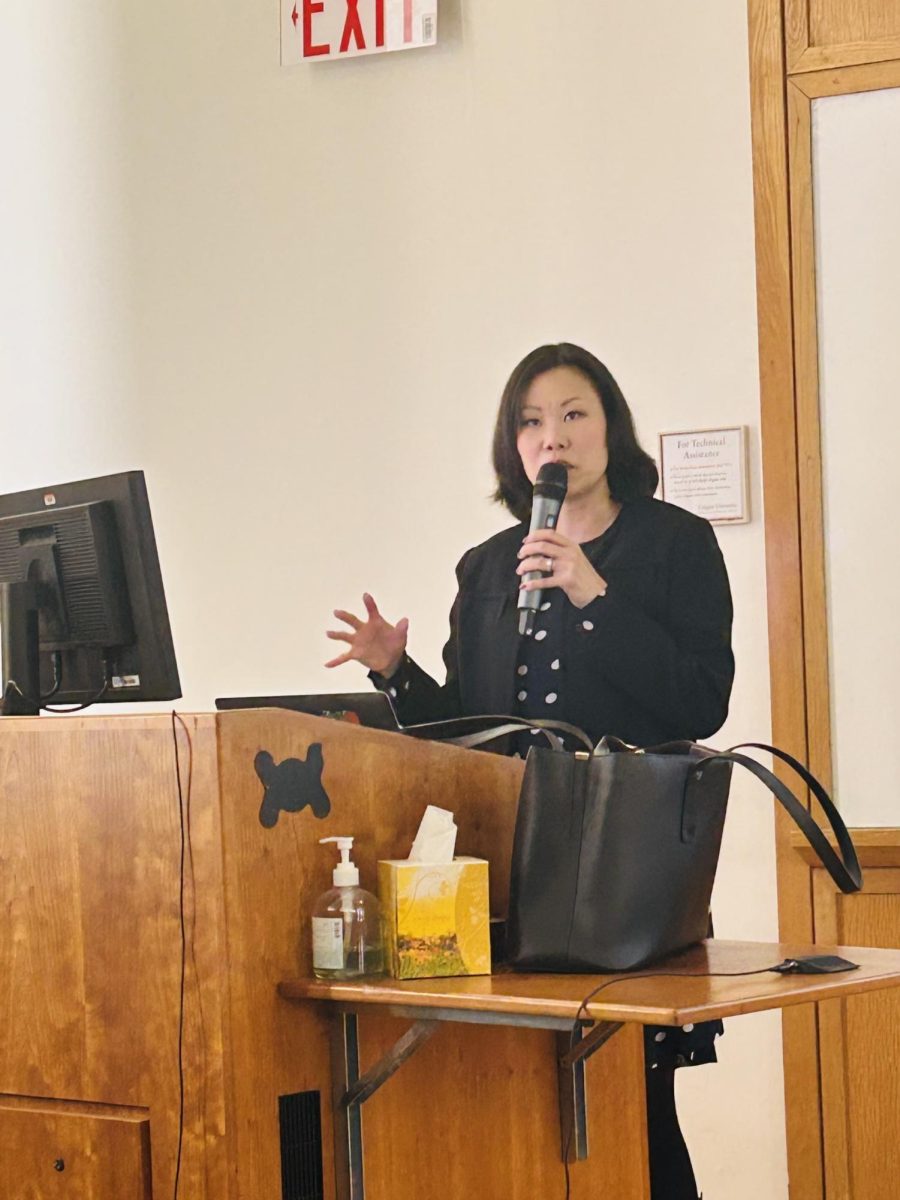Colgate University’s department of biology hosted a seminar on malaria parasite population genomics on Tuesday, March 26. Abebe Fola, a senior postdoctoral researcher in the department of pathology and lab medicine at Brown University, was the University’s guest speaker.
Fola presented the findings of a study he conducted in Ethiopia. In this study, Fola and his team were able to detect new strains of parasites that cause malaria. These strains were significant because they are resistant to current treatments and do not show up in the results of modern diagnostic tests. These new technologies include molecular inversion probes (MIPs) and would be applied to enhance malaria molecular surveillance (MMS). With the help of public health procedures and priorities, MMS defines the different strategies used to detect malaria and its corresponding parasites.
The research that Fola did in Ethiopia was especially meaningful to him, as Fola is from a small town in Ethiopia where malaria was — and still is — very common. Fola started working on his malaria research during his high school years, and he attributed the start of his work to the many peers and mentors he lost from his hometown due to the disease.
Associate Professor of Biology and Director of the Global Public & Environmental Health Program Bineyam Taye hosted this seminar. Fola worked as one of Taye’s students in Ethiopia before Taye began working at Colgate.
“I was excited to reconnect with Fola and invite him to Colgate to share his new research findings with our students and faculty,” Taye said.
Fola opened by discussing the root of the problem that his work attempts to solve. While there are 60 known anopheline mosquitoes that are able to transmit malaria, certain parasites — categorized as hypnozoites — are dormant forms of malaria parasites that remain in the liver for longer periods of time. Because of their dormant state, hypnozoites can eventually cause a malaria relapse in patients.
“There is currently a lack of robust tools to diagnose and treat hypnozoites,” Fola said.
His research follows the patterns of hypnozoites and attempts to introduce different genomic technologies that would diagnose these specific forms of malaria.
Fola aimed to introduce the concept of genomics in an effort to detect and minimize the spread of malaria and its corresponding parasites. He showed his audience graphs that indicated recent spikes of uprising malaria cases, specifically evident after the COVID-19 pandemic. With the data showing increasing numbers of malaria cases, Fola used this as further evidence that updated technology is needed.
“Genomics helps to reveal how parasites respond to control interventions at a genetic level,” Fola said.
He wished to introduce more updated technologies that are adapted to utilize genomics in their efforts to detect and terminate these parasites.
Fola spoke about one of his studies conducted in Ethiopia. In this study, Fola and his team focused specifically on the Plasmodium vivax (P. vivax) parasite of malaria. Fola found that parasites such as P. vivax are more diverse than other strands, meaning that they are harder to track and control. These specific strands are also more susceptible to cause relapses in their patients.
“Relapse allows for different strains from past infections to coincide with strains from the blood,” Fola said.
First year student Lauren Kelley shared her thoughts on the seminar.
“I thought Fola’s presentation was extremely interesting and covered a topic that everyone should know more about,” Kelley said. “I had not fully realized how prevalent of a disease malaria was and how difficult it currently is to detect the parasites that spread it.”
The seminar allowed audience members a unique opportunity to develop their knowledge of malaria parasite population genomics and learn from Fola, an expert in the field, leaving listeners with a better understanding of the continued demand for research in this area moving forward.












